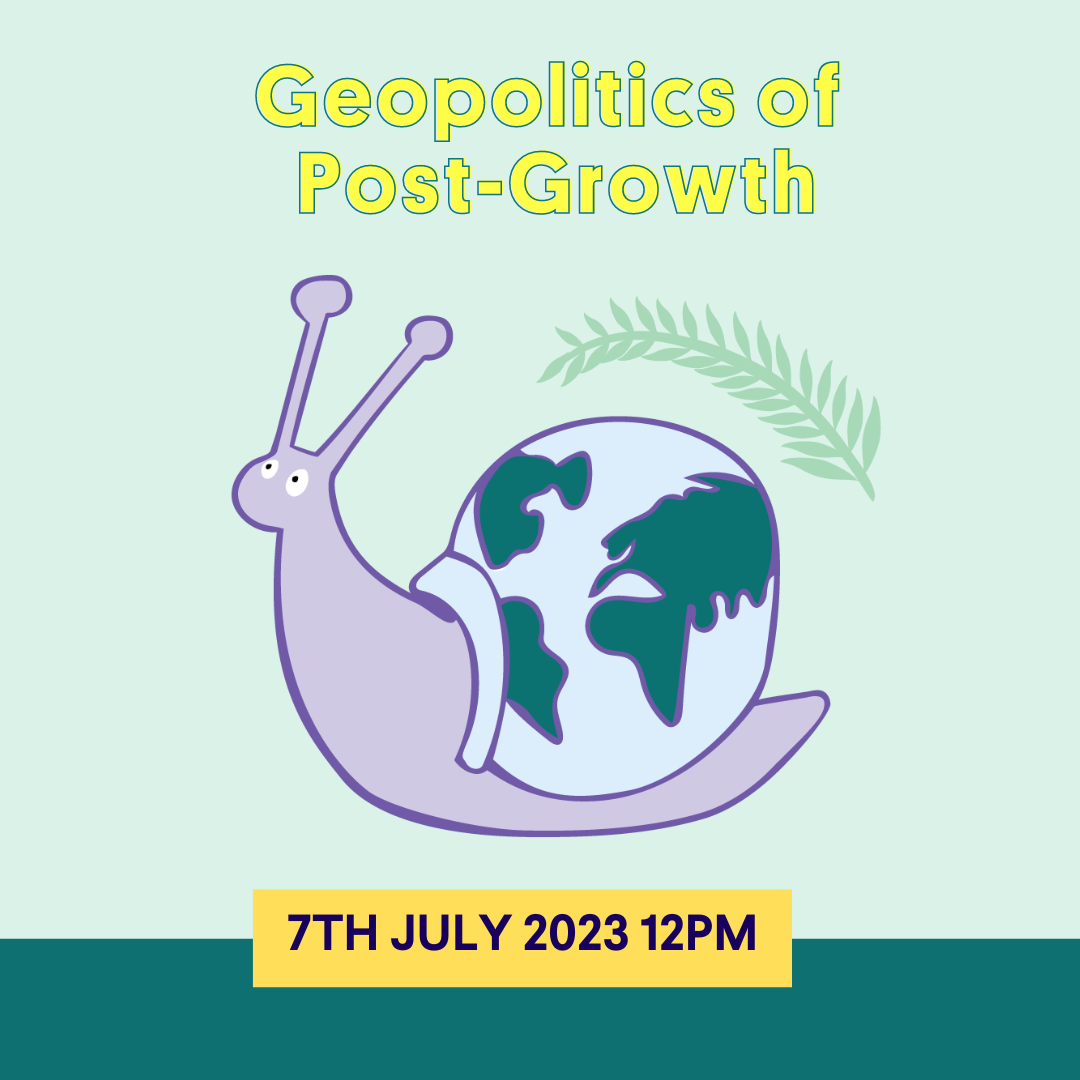
- This event has passed.
Geopolitics of a Post-Growth Europe: Rethinking Relations with the Global South?
2023

A post-growth Europe requiring fewer resources opens up prospects for rethinking relationship with developing regions. From exploitation to cooperation, from concentration of wealth to fair sharing, what would a post-growth Europe have to offer to regional blocs outside China and the USA? This expert webinar will explore that question, feeding into a broader debate on the geopolitics of a post-growth Europe!
About the event
Rivalries between states or political entities for sovereignty over a territory or a resource are often enough to justify the development of (often commercial) armed forces and alliances. Geopolitics, if it is to mean anything other than the analysis of this interplay of forces and influences, would therefore affirm that no state would voluntarily reduce its economy at the risk of being overpowered by another one not willing to make this sacrifice.
This generality about international relations partly explains the expansion of empires throughout history, and from this point of view, the great European and industrial powers are doing nothing new by colonizing, enslaving, and establishing asymmetrical trade relations.
What’s new, however, is that the intensity of the economic flows of industrial means of production is ravaging ecosystems and climatic balances. In other words, the economic growth of the major powers (exploiting resources extending far beyond their sovereign territories) is unsustainable.
In response, many intellectuals are striving to bring out a convincing macro-economic model of post-growth. These efforts are taking place when economic growth is slowing down, or even stagnating, and producing increasingly irreversible and lethal effects on the environment and people’s health.
Theoretical models of post-growth postulate that it is possible to reduce the intensity of physical and economic flows while maintaining a satisfactory standard of living. That is to say, maintaining a “good standard of living” (with access for all to education, healthcare, leisure, culture…) without using fossil fuels implies developing a large-scale renewable energy system, which we know very well has a lower energy rate of return and requires large quantities of materials.
In any case, the abandonment of fossil fuels and the development of a decarbonized, non-growthiest economic model holds the seeds of new international relations and new balances of power.
Project background
This event is part of GEF’s project Geopolitics of a Post-Growth Europe, which explores the tensions between degrowth/post-growth and geopolitics. The project aims to ignite a conversation between critics of economic growth and progressive thinkers on foreign and security policy, who now often operate in separate circuits. It aims to find solutions beyond naïve anti-militarism and convenient belief in green growth. Find out more about the project and its findings at geopoliticspostgrowth.eu.
Practicalities
Date and Time: Friday, July 7th (12:00 – 14:00 CEST)
Location: Online, via Zoom
Language: French
Registration: This is a closed expert meeting. However, if you wish to learn more or receive an invitation, please get in touch with Kévin Puisieux via k.puisieux (at) fondationecolo.org.
This expert meeting is organised by the Green European Foundation with the support of the Fondation de l’Ecologie Politique and the financial support of the European Parliament to the Green European Foundation.


